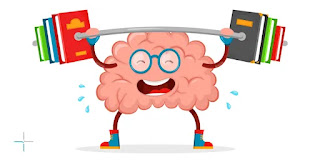Advice That Will Help You To Remember!
Help You To Remember - Memory is extremely relevant to having a healthy body and mind. Build your memory and understand the tools that help you to do so by learning everything you can on strengthening your mind. The next few paragraphs will be your guide to understanding how to preserve your memory and make it stronger. Arm yourself with as much knowledge as possible!
If this is your situation, you should use about 5 to 15 minutes of your time when studying to let your mind rest. This break can help your brain absorb information more efficiently.
One of the most popular ways to commit information to your long-term memory is to utilize one of many different mnemonic devices. Mnemonic devices are used for memory in a way similar to how shorthand writing is a useful device for taking dictation. You "tag" the thing you want to remember with a helpful image or word that will prompt your memory.
Try paying attention to better your memory. If you aren't one hundred percent focused, then your mind may not retain the full memory. Try to make sure your mind is clear and focus on the information being offered. Consciously think about the information and this can solidify your memory.
If remembering obligations or tasks is hard for you, jog your memory with sticky notes. The notes can then be placed with your designated spot for your keys, phone or computer. These notes will make sure that you don't forget things that are important.
Your brain is similar to a muscle. It can become weak if you don't exercise it often. Many studies have shown that puzzles and mental stimulation even help fight senility.
Memory games are a good way to keep your memory sharp. There are memory games out there that can be fun and can help you remember things better. In addition to improving memory, these fun games can improve your attention and concentration as well. Some of the memory games are available to play for free online.
Try to get more quality sleep time. As you might have guessed, getting enough sleep can really help both short-term and long-term memory. If your mind is fatigued, you may become forgetful. Try getting more sleep to improve your memory.
One especially scary aspect of aging is loss of memory. Taking prescription medication can effectively preserve memory function, especially for those who suffer from severe problems like dementia.
Exercising on a regular basis will help your memory. You do not have to spend hours working out, a few minutes of activity should be enough.
Cramming to remember information is rarely effective. To be more effective, make several study sessions to break up the information intake. Don't try and learn all there is to learn in one sitting. It can overwhelm your mind, and you can forget nearly all of it. Make sure you study regularly so that your brain is stimulated into remembering.
Even if you are not in school or college, it is crucial that you continue to learn new things. The part of your brain which helps with memory needs to be used to continue functioning. Eventually when you find yourself in a position where you have to remember something, you might realize that it is difficult.
Never doubt yourself. Some people just assume that memory decline is an inevitable fact of aging. This is often a self-fulfilling prophecy. Anticipating memory loss can actually cause it. If people around you are questioning the state of your memory, you'll begin to doubt yourself. Having an unshakable belief that you have a great memory can have a self-reinforcing effect, too, so take advantage of it.
Organizational tools, such as day planners or wall calendars, are an amazing way to keep on top of important items in your life. Buy a planner and write everything down. Draw up a schedule and check it at regular intervals to see how you're doing. The more you write things down and view them, the easier they are to recall on demand. There is less information you have to remember and it is convenient to have if you should forget something.
There are exercises you can do to improve your memory. Armed with this information you can start giving your brain a workout. Utilize the tips from this piece in your everyday activities, in order to keep sharp as you begin the aging process.
















